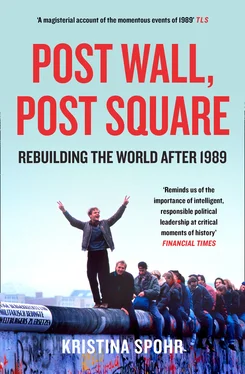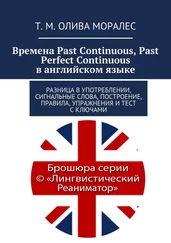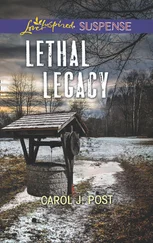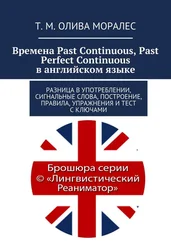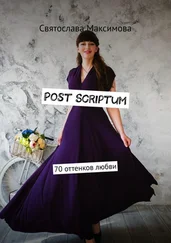Gorbachev was really soaking up American adulation. A block south, in the middle of Times Square – the Mecca of world capitalism – the electronic billboard was flashing a red hammer and sickle with the message ‘Welcome, General Secretary Gorbachev’. He might still have been a communist at heart and the leader of America’s rival superpower, but that night in New York, ‘Gorby’ was a superstar, hailed above all as a peacemaker. Indeed most of his time in Manhattan the Soviet leader was mixing with celebs, billionaires and high society, rather than rubbing shoulders with the American proletariat.[1]
One of the visits tentatively scheduled was to Trump Tower. Real-estate developer Donald Trump could not wait to take Mrs Gorbachev around the glitzy shops in his tower’s marble atrium. He was also dying to show off to the Gorbachevs a suite on the sixtieth floor with a swimming pool that he claimed was ‘virtually regulation size, within the confines of an apartment’ and, of course, his own opulent $19 million domicile on the sixty-eighth floor. He said he wanted them to get ‘a good shot of what New York and the United States are about’ and he hoped that they would ‘find it special’. In the end, Gorbachev’s itinerary was altered and Trump Tower slipped off the list. That afternoon, however, when a Gorbachev lookalike was seen strolling past Tiffany’s and down Fifth Avenue followed by a horde of film crews drawing huge crowds, Trump and his bodyguards rushed down from his office thinking that the Soviet leader had changed his mind and was now keen to view his temple of consumerism. Squeezing on to the sidewalk, the tycoon enthusiastically pumped the fake Gorbachev’s hand.
The real Gorbachev was actually sequestered inside the Soviet mission. Caught out, Trump assured journalists he had seen through the stunt, declaring ‘I looked into the back of his limo and saw four attractive women. I knew that his society had not come that far yet in terms of capitalist decadence.’ Mikhail Gorbachev certainly did not share Donald Trump’s ideal of decadence. Nevertheless, he was clearly fascinated by the market economy. Bystander Joe Peters reckoned that Gorbachev was ‘going to learn all our tricks of capitalism and become the Donald Trump-ski of the Soviet Union’.[2]
The sense of anticipation was palpable. That very morning Gorbachev achieved perhaps his greatest international triumph so far. At the United Nations he had delivered a truly astounding address, one that would become pivotal for future Soviet foreign policy and for the course of world politics. Gorbachev’s intention was to deliver ‘the exact opposite’ of Winston Churchill’s notorious Iron Curtain speech of 1946.
Over the course of one hour, the Soviet leader dropped a succession of bombshells on specific policy issues. Most striking, he declared the termination of the international class struggle, insisting that ‘the use or threat of force no longer can or must be an instrument of foreign policy’. Instead, he urged the world to embrace ‘the supremacy of the universal human idea’ and lauded the significance of the 1948 UN Universal Declaration of Human Rights which had been adopted, almost to the day, forty years before.[3]
These were amazing words from any Moscow policymaker, let alone the general secretary of the Communist Party of the Soviet Union. On the eve of 1989 Gorbachev stood before the world as the master of reform, apparently in control of events.
In reality, he would unleash a revolution that swept everything before it – eventually even himself. And the Western leader who would have to cope with the fallout was a cautious new American president who felt considerable scepticism about his magnetic Soviet counterpart and was wary about the true intentions behind Russia’s headline-grabbing reforms. George H. W. Bush had been vice president for all eight years of Ronald Reagan’s presidency (1981–9). He would enter the White House determined to take stock of US–Soviet relations and rethink his priorities as he started building a new agenda that would distinguish him politically from the Reagan administration.[4] In fact, his main concern in early 1989 was how to handle the ‘reinvention’ of communism that was under way not in Europe but in Asia.
*
Mikhail Sergeyevich Gorbachev was not a ‘normal’ Soviet leader. Born in 1931 in Privolnoye, a small village near Stavropol in the north Caucasus, he grew up witnessing his family’s suffering under Stalin’s collectivisation drive and later the Great Purge. When Gorbachev was ten, his father was drafted into the army and did not return for five years. Privolnoye was spared destruction during the Great Patriotic War but Stavropol was occupied by the Germans for five months in 1942–3, so Gorbachev experienced the ravages of war close-up and did not forget. Academically gifted and interested in politics, he shone at school and was cultivated from an early age by the local leaders of the Communist Party. Thanks to their patronage, he was sent to the prestigious Moscow State University (MGU) to study law; in order to gain entry he wrote an essay entitled ‘Stalin is our battle glory, Stalin is the Flight of our Youth’ – evidence that his political views then were still ‘straight Stalinist, like everyone else at the time’, as his best friend at university put it. At a third-year ball he met Raisa Maximovna Titarenko, a chic and clever philosophy student. A year later, in 1954, they were married.
Sent back to Stavropol, Gorbachev rose steadily through the Soviet nomenklatura system in the usual way, while Raisa taught Marxism at the local polytechnic and studied for a PhD on the peasantry in the region’s collective farms. Gorbachev’s youthful Stalinism was shaken by First Secretary Nikita Khrushchev’s 1956 ‘secret speech’ which denounced his predecessor Stalin’s monstrous crimes and laid bare the endemic problems of Russian industry and agriculture. Henceforth Gorbachev, though continuing to believe faithfully in communist ideology, recognised how flawed it had become in Soviet practice. Through his travels with Raisa to France, Italy and Sweden from the 1960s onwards, he encountered the West and glimpsed an alternative future. Meanwhile, his political career accelerated. In 1967, he became the regional party boss, aged only thirty-five; twelve years later he was put in charge of Soviet agriculture, moving to the centre of power in Moscow, while Raisa was given a teaching post at MGU. One of his leading patrons was KGB chief Yuri Andropov, who succeeded Leonid Brezhnev as general secretary in November 1982.[5]
Although nearing fifty, Gorbachev was almost a spring chicken by the standards of the Soviet Politburo. Andropov, nearly seventeen years his senior, suffered from acute kidney failure and died in February 1984. His successor Konstantin Chernenko was two decades senior to Gorbachev: afflicted with heart and lung problems, he expired in March 1985. Finally the old men of the Kremlin decided to jump a generation and opt for Gorbachev. Justifying to Raisa why he was taking the job, Mikhail said ‘all those years … it’s been impossible to achieve anything substantial, anything on a large scale. It’s like coming up against a wall. But life demands it. We can’t go on like this.’[6] Yet what should be done instead was much harder to determine. First Gorbachev tried an anti-alcohol campaign; after that failed he looked for deeper remedies and new slogans, espousing first ‘uskorenie’ (acceleration), then ‘perestroika’ (restructuring) and ‘glasnost’ (transparency). But these did not entail revolutionary changes: Gorbachev was still a party man and wanted to re-form the Soviet system to make it more viable and competitive: his motto was ‘Back to Lenin’.
His frequent invocations of Lenin were in part to justify to the party his policies of innovation and restructuring, which so sharply deviated from the Stalinist and Brezhnevite practice that in Gorbachev’s opinion had perverted ‘socialism’. But more than that, he identified his own view of fundamental reform of the Soviet system under the auspices of perestroika with Lenin’s 1920s ideas of a New Economic Policy: a guided and limited system of free enterprise. His goal at this stage was not a turn to capitalism or to social democracy. For him Lenin remained the source of legitimacy for policy changes within the Communist Party of the Soviet Union (CPSU) – the pure font of Soviet doctrine. He wanted to restructure the traditional Soviet sociopolitical order ‘within the system’, which is why under glasnost he also advocated ‘socialist pluralism’ ahead of full ‘political pluralism’ – all this to reinvigorate the Soviet Union.[7]
Читать дальше
